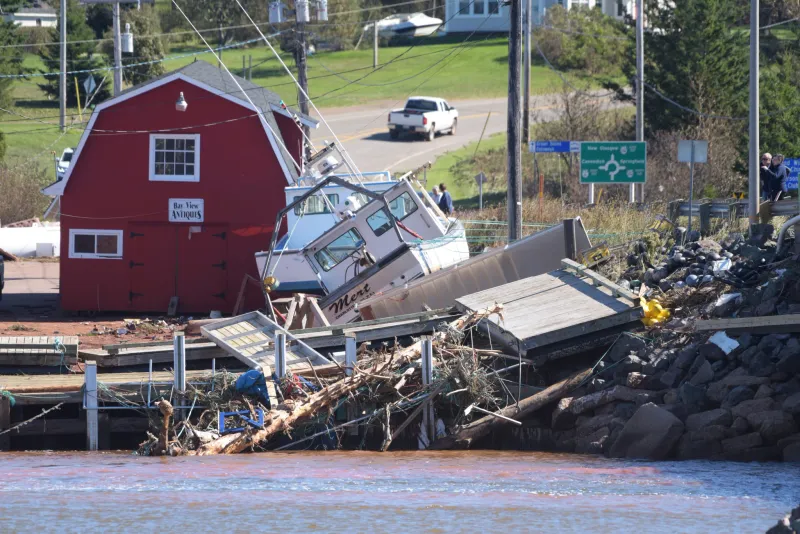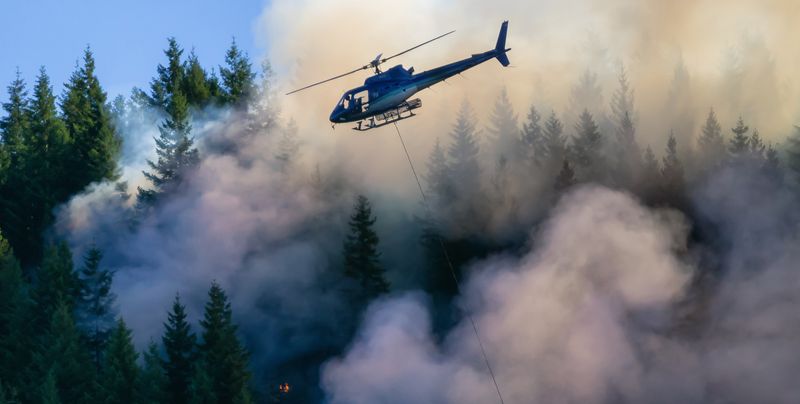Brace yourself: winter is coming to Canada’s economy, and it’s going to dump more suffering on the existing, brutal mess. If there is anything clarifying in the recession to come, it’s that the chasm of inequality that divides our society is so deep and jagged now that the case for system change is making itself on a daily basis.
Liberal purveyors of the status quo are ill-equipped to address the need for deep change, expressed as it is in legitimate rage at elites who actually do run the economy for their own benefit. We need a countervailing force — a progressive populism — rising on a wave of anti-corporate outrage. In a country where, in the first year of the pandemic, 59 billionaires increased their wealth by about the same amount the government spent supporting workers, the outrage is there to be harvested.
Panicked parents are scrambling to keep sick kids out of the chaos of emergency rooms and overflowing ICUs, while drugstore shelves gape back at them, empty of basic medicines. Ottawa’s share of health-care spending — which started at 50 per cent at the dawn of medicare and has been sliding since Pierre Trudeau first fuddle-duddled with it in 1977 — is now down to a historic and shameful low of 22 per cent. And as our cherished health-care system sinks deeper into emergency, talks between provinces and the feds have gone absolutely nowhere under Trudeau the younger.
News stories profile disabled folks who are turning to medical assistance in dying as a way out of the unbearable humiliation of legislated poverty and the housing emergency. Between the time I type these words and the time you read them a couple of days later, at least a dozen lives will be snuffed out by toxic drug poisoning here in B.C. And we are still deep in a cost-of-everything crisis where a bag of lettuce can go for 15 bucks.
The Bank of Canada, for its part, is responding to inflation with a grim determination to keep jacking up interest rates, knowingly driving Canada into recession. The human cost will be devastating, including a sizable cohort of over-leveraged mortgage holders who will be forced from their homes. Pursuing a sadistic and outdated economic orthodoxy, against all the evidence and plenty of better advice, central banker Tiff Macklem insists inflation is being caused by a “tight labour market,” which is banker talk for workers finally having enough power to demand slightly better wages and working conditions.
Would that this were true. The fact is that even by the low-ball official estimate, more than a million Canadians are still out of work, and inflation is a global phenomenon driven by war, supply chain disruption and a healthy layer of profiteering as corporations pad prices that are already going up, hoping we won’t notice. Driving up unemployment is not going to benefit anyone other than those who sit back and watch their fortunes rise with their share price.
Because amid all this suffering — what we’ve been through and what’s to come — there is one statistic that marches ever upward: corporate profits. Banks, insurance companies and oligopolies in telecoms, oil and gas, groceries and pharmaceuticals just keep raking in record-breaking profits. Quarter after quarter, year after year, at every stage of the business cycle.
We will no doubt hear much angst in the business press in months to come about declining profits in the recession. Don’t be fooled. This year, after-tax corporate profits hit their highest level in history — equivalent to almost a fifth of our entire GDP.

While there is the occasional brief dip, since the early '90s, the historic arc is as obvious as it is outrageous. When interest rates are low, corporate profits go up. When interest rates are high, corporate profits go up. Growth or recession, corporate profits go up. Early pandemic, mid-pandemic, permanent pandemic, profits up. This is not a fluke or the result of new brilliant leadership in the corporate sector (the recent behaviour of billionaires is proof positive of that).
Rather, it’s the absolutely predictable consequence of the last 40 years of corporate-friendly restructuring of our world. Call it neoliberal globalization, the economy that Davos built or the triumph of the Corporate Welfare Bums — even if a rising tide did lift all boats, the folks in dinghies are forever frantically bailing, while the yachting class is now looking down from the portal of a private space shuttle.
The bald truth is that the wealthiest among us, those who harvest the riches from these defiant extremes of corporate opulence, have detached from the rest of the economy and society. It has never been clearer that widespread suffering is the necessary condition for their luxury.
We are living in the Corporate-ocene, and it is an age that we must wrestle off its current course before it crashes, bringing down the conditions for life on this planet with it.
Last month, the United Nations Research Institute for Social Development dropped a magisterial report on inequality that makes all the connections brilliantly. It’s worth quoting at length:
“Inequality has been a driver, amplifier and consequence of multiple and overlapping crises — economic, social, political and ecological. The result is a vicious cycle which is disrupting the basis for human life on this planet and eroding prospects for a dignified and peaceful life for all. Vulnerable and marginalized groups, who face multiple intersecting inequalities, are worst affected, falling further behind. Elites, on the other hand, can largely shield themselves from adverse impacts of crises and often even exploit crises for their own gain… Today’s extreme inequalities, environmental destruction and vulnerability to crisis are not a flaw in the system, but a feature of it. Only large-scale systemic change can resolve this dire situation.”
This is our lived experience in Canada, where we have elected governments at both the provincial and federal levels that espoused bold progressive action on all our intersecting crises, and yet have yielded to the pressure of the Corporate-o-cene status quo again and again.
Canada has the third-highest drug prices in the OECD. Ottawa attempts a modest move to reduce them and lay the ground for long-promised pharmacare? Five years later, Big Pharma has lobbied and astroturfed the plan right off the table.
Justin Trudeau twists himself and basic common sense into a contorted pretzel of pseudo-logic for seven long years, insisting we can only have a climate action plan if we have more pipelines … and that emissions can go down while oil and gas production goes up.
And when he belatedly lays out a plan to cap emissions in the oil and gas sector, Big Oil demands outlandish levels of corporate welfare for the carbon capture technology that will allow it to keep producing its planet-choking products until 2050 and beyond.
I think the dimensions of inequality, and the central role of wealth and corporate power in blocking progress on the crises cascading around us, is pretty well understood these days, as evidenced by numerous campaigns and initiatives making the rounds. Yes, we should have a windfall tax, a wealth tax and a tax on Big Oil (and we should sue them while we’re at it). We should tackle tax havens, call out “greedflation,” demand a truly just transition away from fossil fuels and make sure no fossil fuel lobbyists are ever part of a Canadian climate delegation again.
But all the solutions on offer — especially those from government, like the laughable Liberal two per cent tax on share buybacks — are an order of magnitude too small. And it’s too easy for big corporations to lobby their way out of them. What we need is governments elected with a mandate — and sustained popular pressure — to structurally rebalance our economy and society. To legislate, regulate, tax, break up and yes, nationalize corporations in the public interest. The Corporate-o-cene must be brought to a swift end.
If this sounds suspiciously like a call for class warfare, you’re damn right it is. After all, it was 16 years ago now that Warren Buffett told the New York Times: “There’s class warfare, all right, but it’s my class, the rich class, that’s making war, and we’re winning.”
In 1948, my grandfather David Lewis wrote a democratic socialist manifesto with the poet Frank Scott called Make This Your Canada. In its pages can be found a sentence that rightly rings down the years: “The basic struggle today is between the 99% who are reaching out for the economic and political power which the 1% now effectively control.”
This is generational work, to be sure. But to have even a fighting chance of a fair future — or any future — for humans and other living beings, we must disrupt and transform the system built to lock in the power of the modern corporation. At the beginning of a long, cold winter, that prospect should stoke the fires of our righteous rage.





